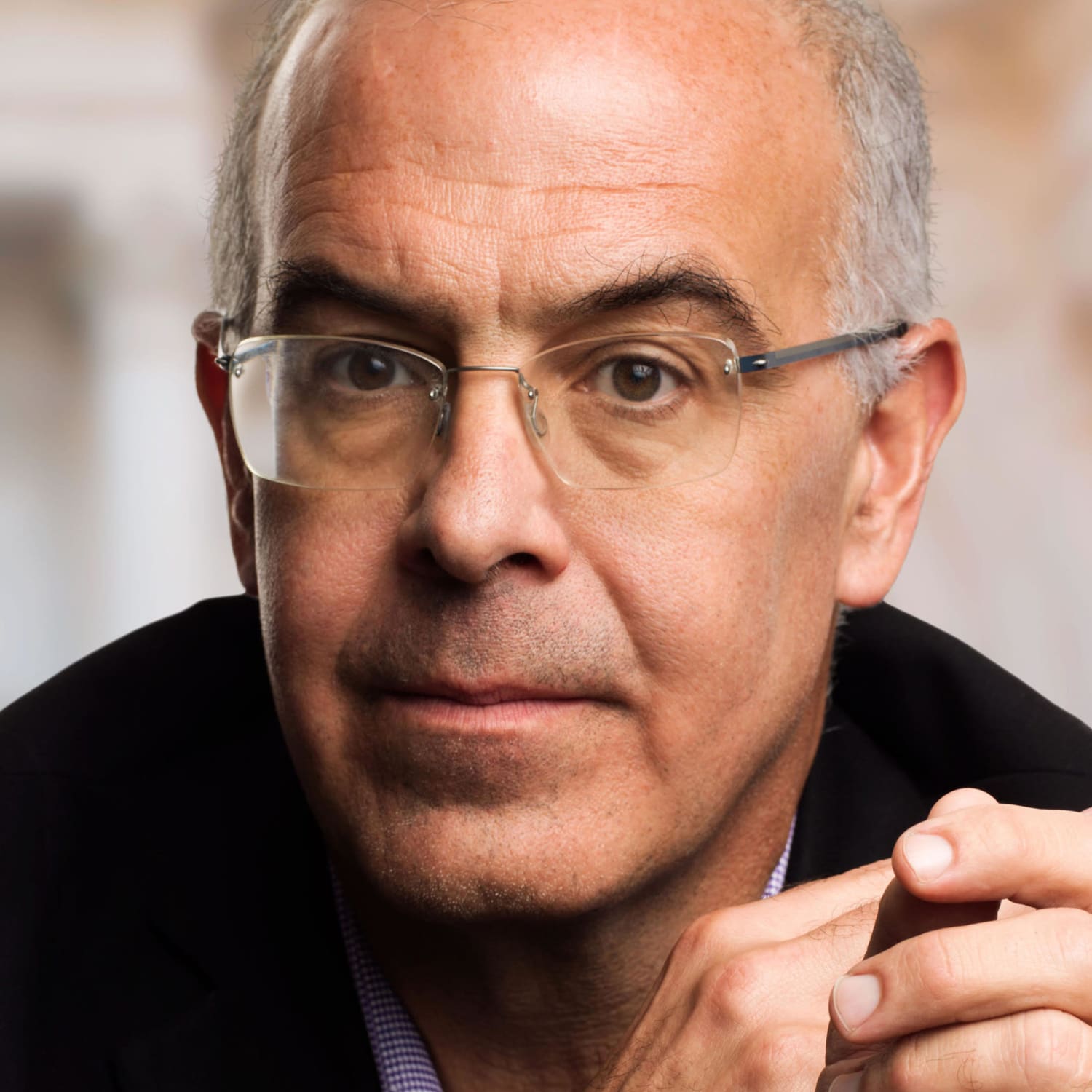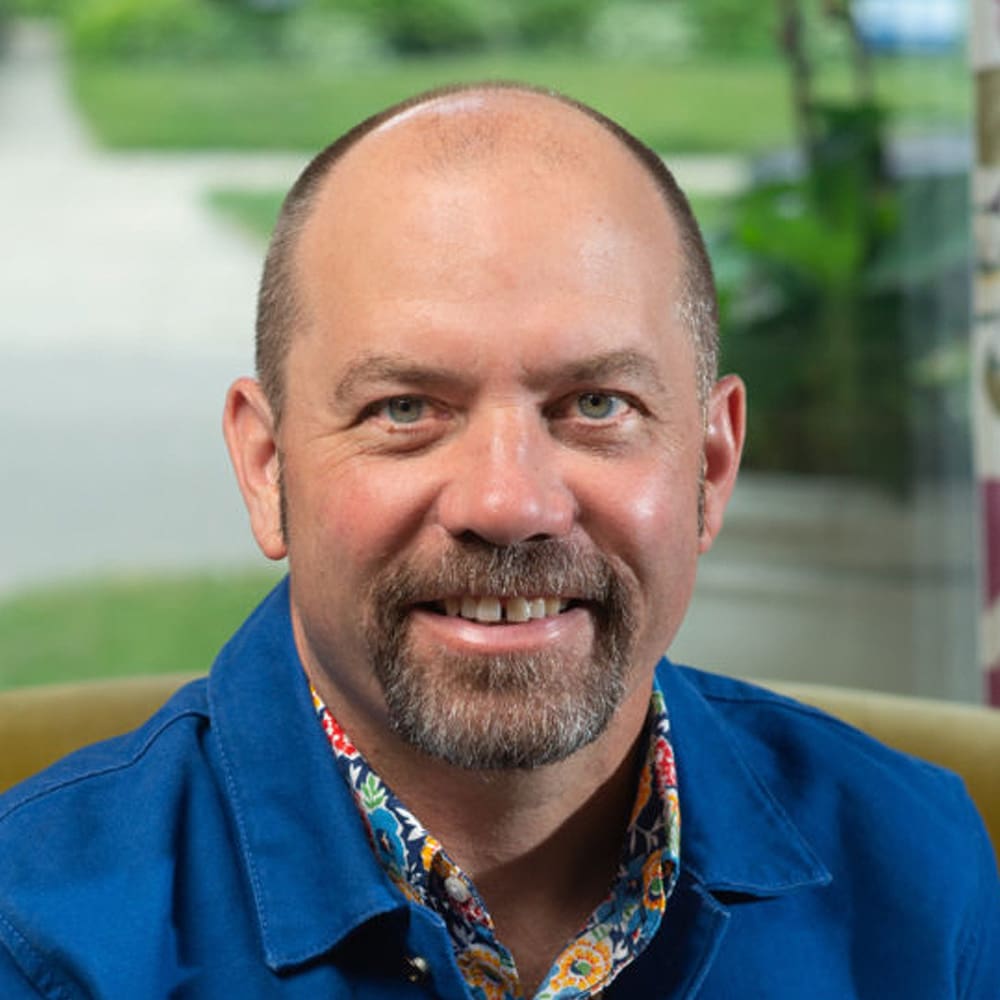At a recent Q conference in Washington, D.C., Comment editor Jamie Smith had the opportunity to sit down with New York Times columnist, David Brooks. A noted cultural commentator, Brooks is the author of a number of books including classics such as On Paradise Drive, Bobos in Paradise, and most recently, The Social Animal. As both a journalist of ideas and someone who covers the political beat, Brooks is interested in the systems, institutions, and habits that characterize cultures of flourishing. And as a columnist who tends to frustrate both Left and Right, Brooks exhibits an independence of perspective that is important to those of us trying to navigate a way beyond ideology. He’s someone you should be reading. We’re grateful to Gabe Lyons and our friends at Q for permission to share this interview in Comment.
 |
Jamie Smith: David, thanks so much for making time to be with us today.
David Brooks: Pleasure to be here.
JS: Your thinking has impacted a lot of folks who will be gathered here today. One of the themes that sort of energizes this group and this conference, the Q conference, is pursuing “ideas for the common good.” It strikes me that in some ways the “common good” is under a bit of threat in our current moment, in our current zeitgeist. You’ve talked about some of that yourself, in your columns on Charles Murray’s book, Coming Apart, for example. I think there’s increasing fear that we’re retreating into these enclaves and special interests. I wonder, what do you think is the hope for not coming apart? What are the prospects for the common good?
DB: I guess I’d say there is hope and I’d say it’s on a couple of levels. First, there’s just the common nature of our humanity, that we all have certain traits in common. There was an assumption about ten, fifteen, twenty years ago, a pretty much universal assumption, that we were blank slates; that we made ourselves depending on how we wanted to. But over the past several years I think that idea has pretty much been discredited. There are certain things we all share, certain weaknesses. We all have a confirmation bias, a tendency to pick out the evidence that makes us feel good. We also have certain strengths, sort of intuitive strengths and we all have a deep interpersonal connection with each other. One of the conclusions of the recent research on neuroscience is that we have these things in our heads called mirror neurons, which means we deeply imitate each other. We not only see each other, we replicate in our own minds what we see each other is doing. So that really strengthens the natural power of any human community.
The second thing is culture and history. My family—well, part of my family, most of my family wasn’t here—in the 1830s when Alexis de Tocqueville came here but the country he described is still essentially the country we live in. Those common historical threads mean that while even while we fight, if you go abroad you realize, “Well, I’m still an American.” At times of trauma like 9/11, we still tend to snap together and unify. Those common themes, both the human and cultural-historical are still there and still give us a lot of commonality.
JS: Some people would want to suggest that religious visions and religious voices contribute to our coming apart. Do you think there’s any way to see religious communities as part of that culture-building that could actually foster the common good?
DB: Yes. First of all, I don’t believe that story. I think what defines us in America is a certain religiosity no matter how secular or atheistic some people may be. Europeans came to this country hundreds of years ago and they saw the incredible abundance of the land, and they had two thoughts. One was that God’s creation could be completed here and the second was that they would get really rich in the process. That gave them a moral materialism, an eschatology, a vision of how history would end. That moral materialism still drives us. That’s why Americans move so much, why we’re so energetic. It’s why we have fights over abortion and things like that the way other countries don’t. It’s why we’re still very religious even though we’re very affluent. It’s why we have stores like Ben & Jerry’s Ice Cream, stores that try take material things and make them moral. That distinguishes us. That religiosity [impacts] everybody. Even if they don’t think they’re religious, their minds are shaped by that history of religiosity and I do think it still is basically a binding force for us.
JS: This conference gathers a lot of folks who are really passionate about cultural change—building culture—especially from a younger generation. I wonder what your thoughts are about how cultural change happens. Because it seems like in The Social Animal, there could be a little bit of a chicken and egg question in that respect. On the one hand you need these agents who are passionately pursuing cultural change. On the other hand, it seems like to get such agents of cultural change, you need an ethos, a culture, a community that is building them and fostering them. I wonder: Where does one start? Is it bottom-up? Is it top-down? Are we being naïve to think we can change culture?
DB: No, cultural change happens, but it happens slowly and unpredictably. I guess the first thing to be said is that it is what drives history. You know, I cover politics. We’re in Washington right now. Tom Wolfe was once asked, “What’s the most important thing that happened in your lifetime?” and he said, “Oh, that’s easy. Coed dorms.” What he meant by that was that in 1950, coed dorms would’ve been unimaginable at any university in the country. Now, in many universities, they’re just normal.
That’s a pretty big change that nobody planned, it just happened. So how does that change happen? I’d say it happens, first, in small cells. That you get a group of people, one person, then a group, and then that group creates other cells and then the cells just multiply. Some cells never go anywhere. Most cells, it’s like entrepreneurial activity. It just never goes anywhere, but some cells really do go somewhere.
I’m reading a book right now by Dorothy Day, the Catholic social worker who started the magazine, Catholic Worker. It was just her at one point, and she took some wrong turns (I think she was pacifist during World War II, but that was consistent with her view of life). But she really created a movement by living an example. What was interesting about her was that the Catholic Worker wasn’t only a newspaper, it was also a boarding house for the poor, it was farms, it was a soup kitchen. She did everything; all venues that would create community and she did them all. That’s a model of how change happen.
JS: The Dorothy Day example is so interesting because one the one hand, she’s building these Catholic Worker houses and it’s a bit of a cell-like movement. On the other hand, there’s the weight of an institution there that she’s drawing on, a tradition. I wonder . . . You’re something of a Burkean conservative so you have this reverence for institutions, which has taught me a lot, actually. I wonder if you ever worry about a rising generation sort of repeating boomer antipathy to institutions. Or do you see a difference maybe in a new generation’s relationship to institutions?
DB: I think it’s a problem. I think a lot of people have been taught, “Think for yourselves. Come up with your morality,” and if your name is Aristotle, maybe you can do that. If your name isn’t, you probably can’t. I think the smarter thing to do . . . you might not feel at home in the dominant culture but find the counterculture, find the counter-tradition. There are many institutions out there and many traditions out there; find one that feels right to you, just by experiment, finding the one that feels right. That won’t determine your thinking in lockstep but it’ll give you a frame—a lot of people are smarter than you, working over centuries to fill in a tradition. I really think it’s a big mistake to think you can do this on your own. You need a tradition and find who you feel comfortable with.
JS: You spend a lot of time here in Washington. You report on politics. You see behind the curtain a lot. But it seems to me that, personally, you don’t quite fit neatly and tidily into any ideology or current camp. And yet you don’t seem cynical. I think a lot of folks who are gathered here, who are part of this conversation, also find themselves kind of falling between the cracks or at least not comfortable in any sort of camp or party. How do you foster hope when you’re not part of a big choir?
DB: First of all, you do have those traditions. I’m not a dominant Republican or Democrat right now, but I do feel I’m part of tradition. I’m part of that Edmund Burke tradition; I’m part of an Alexander Hamilton tradition. I feel I’m part of something historical that has a long historical flow that even if my style is a little out of phase right now, I feel comfortable that it will come back someday.
Then the second thing to be said is I do cover politics very closely. I interview politicians every single day. I would say they’re better than our system. If you spend a lot of time with them, then you get uplifted because they’re actually decent people. They are usually in it for the right reason. They’re caught in a pretty miserable system right now but that doesn’t mean they themselves are miserable. They’re trying their best within the system that exists around them. Actually, I find the people who are away from politics, who just sort of look at it on cable TV, are more cynical than the people who are actually in the middle of it. Many of them are doing remarkable work for the right reasons.
JS: Interesting. Sometimes our kind of distant observer mentality fosters cynicism more than being in the muck and the mess of it where you get the stories and the relationships that embody that.
DB: My shorthand answer is that the media is more cynical than the politicians and the voters are more cynical than media. We’re sitting here on Constitution Avenue. All around us are groups of federal works. Now, I’m not a huge fan of the federal government, I’m more conservative . . . but if you go into those buildings as I have, you sit in the meetings, you’ll see something different. We would never cover it in the media, of course; it’s just too boring. But the people are very high quality. They’re not getting paid a lot of money, and they’re really committed to public service. That’s the real stuff of government.
JS: Quiet, good work out of the eyes of the cameras. That’s important for us to remember.
Thanks so much for making time to talk with us today. We really appreciate it.
DB: Thank you.



